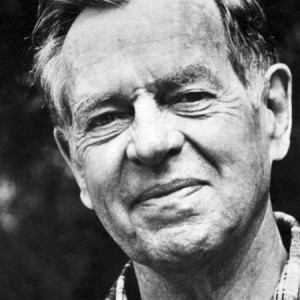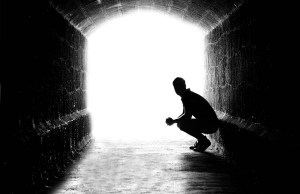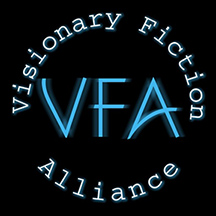Last week, I began a series on Spiritual Objectivism. The subject ties into my writing, and why I’m more motivated and inspired than ever to be an author. This was all brought about by my recent discovery of Libertarian science fiction. These two subjects evolved into a series of posts. If you haven’t read part one, click here.
I never conceptualized the spiritual connection to objectivism until I’d let go of my belief systems and understood what it had meant to be authentic. It wasn’t easy. Between my kundalini awakening and the present day, I’d experienced many traumas and almost lost the relationship with a person close to me because her belief system had clashed with mine. A few years ago, I would’ve brought up how she her cult brainwashed her. I don’t anymore. My shift in mindset happened after I’d realized almost everyone is brainwashed to some extent. And the first person I pointed my finger to was myself.

We’re a herd species. We form groups around politics, nationality, religion, race, culture, sexual preferences, etc. A select few serve as the spokespeople who are followed by the group. Join any group, and there will be some sort of dogma presented. If we dare stray away from what is deemed acceptable, we’re shunned, unless we can outshine the leaders and take their place. We may also get shunned if we’re not in the group or if we challenge the accepted worldview. The leaders establish themselves as experts who are deemed wiser than everyone in the group. Amazingly, many of us don’t bother to question whether or not that’s true. Robert Anton Wilson humorously touched upon these themes in the Illuminatus Trilogy and his non-fiction book, Cosmic Trigger. All hail Discordia!
On my own spiritual journey, I eventually trashed everything I’d held sacred and emerged an ideological agnostic. Since then, I became happier, and my interpersonal relationships grew stronger. The less dogmatic I became, the more risks I was willing to take with my writing. I now write for the sake of the story. This shift gave me an authentic voice, which was important to me. It also made me fall in love with the craft of writing. When I was writing only screenplays, I was told how even a great manuscript ends up getting rewritten. That’s how things work in Hollywood unless you’re George Lucas or Steven Spielberg. Compromising on a vision may work for some writers, but not for me. I was uninspired and knew the only way I could get my story out my way was by writing a novel, which I was reluctant to do because of my short attention span. But once I started, I was hooked because I was able to write according to my own personal vision.
Ayn Rand’s philosophy managed to survive my massive ideological data dump because there are certain truths to it, which are undeniable to me. On a personal level, it champions the importance of creating something from within ourselves as individuals, without compromise. That’s true art. On a societal level, I see objectivism not only as an effective blueprint to a free society where creativity is free to flourish, but also as an ideal way to embark on a spiritual path!
Before I continue, I should probably explain how I can call myself an ideological agnostic while I’m promoting objectivism. The explanation is simple. I don’t view objectivism as my personal religion. It isn’t something I follow blindly or build my worldview around. I do have my own opinions that contradict the philosophy. And those aren’t fixed either! I have no intention of forming a new belief system!
Natural Morality
Ayn Rand’s view on morality is where I’d first spotted the connection between spirituality and objectivism. She postured that morality was natural to humans for the very fact that our survival depends on it. When a government attempts to force morality on us, that’s when we all start to lose. What surprised me within this last decade is that I’ve seen a steady increase in the number of people who identify governmental institutions as the arbiters of morality and compassion…an impossible ideal. Compassionate acts come only from us, as individuals. Morality cannot be forced. Some of my favorite science fiction books and movies also touch upon this theme. A Clockwork Orange depicts a society that used mind programming to cure criminals. Who can forget Alex’s signature smile at the end of the movie, which demonstrated that while his behavior had successfully been controlled, he remained unchanged.
 A limited government is ideal at our current level of societal evolution because it gives us the freedom to develop morality and compassion, as individuals. I touch upon this theme in Unison. It cannot be done by force. When a government tries to coerce people into compliance, the society ceases to evolve.
A limited government is ideal at our current level of societal evolution because it gives us the freedom to develop morality and compassion, as individuals. I touch upon this theme in Unison. It cannot be done by force. When a government tries to coerce people into compliance, the society ceases to evolve.
I don’t view government as a static entity. It’s forever evolving and always a reflection of who we are as a people. This is a major reason why friends won’t hear me whining and complaining about the government. I’ll put up posts in my Facebook page about causes I find important to our personal freedoms, which are under severe attack now. It’s up to us, not the government, to ensure that we’re a free people. The government is a mirror of who we are. If we want an honest and compassionate government, a higher number of us need to evolve towards being honest and compassionate individuals. And that isn’t an impossible ideal because:
Morality is natural to the human condition
“A morality not based on faith, not on arbitrary whim, not on emotion, not on arbitrary edict, mystical or social, but on reason. And morality, which can be demonstrated to be true and necessary.” Ayn Rand
The above quote I internalized after I’d detached from religion and belief. I felt more connected to all of humanity. This demonstrated to me, on a personal level, that morality is, in fact, natural to us as a means to our survival as a species. It’s all the conditionings we place on ourselves that separate us. Therefore, it is true and necessary. I find it remarkable that a self-proclaimed atheist like Ayn Rand can come off sounding spiritual! Additionally, this serves as further proof that there is an underlying basis of wisdom that connects all of us, irrespective of belief or lack thereof. We may be different in some respects, but deep down, we draw from the same fountain of inspiration.
So we are a naturally moral species and that’s something to celebrate. We only have to trust in ourselves more to bring it out.
Click here for part 3 where I’ll explain where I veer off of objectivism.
Love and light,
Eleni



 Within the current socio-political circus came the idea to write an article about the Hero’s Journey for the
Within the current socio-political circus came the idea to write an article about the Hero’s Journey for the 



